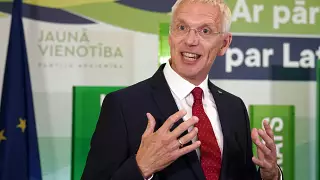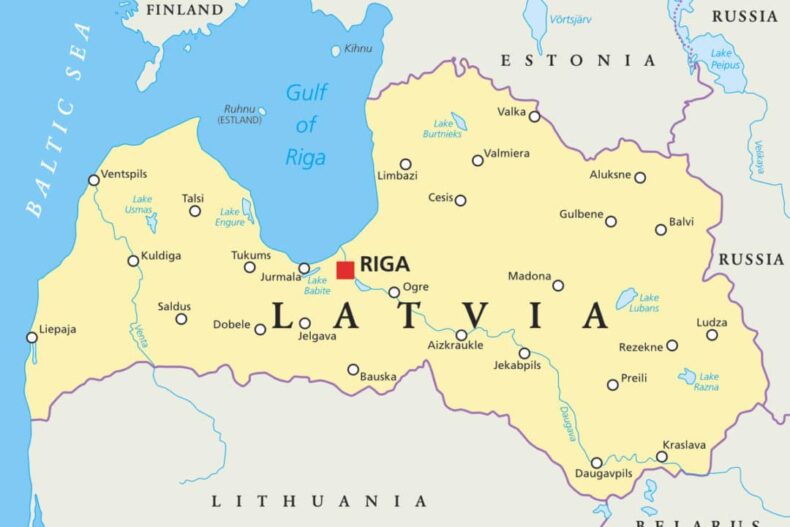
Source: Euronews
Latvian Prime Minister Krisjanis Karins’s centre-right New Unity Party won Saturday’s elections with 19% of the vote (according to the provisional results), putting it in the position to lead another coalition government.
The result of her 96% of constituencies being tallied makes Latvia, alongside its Baltic neighbors Lithuania and Estonia, a leader in urging the European Union to take a firm stance against Russia.
After the election, Karin’s party was the party who won the most votes again. Current coalition members were on track to win him 42 seats in a 100-seat parliament, so Karin will need to call in additional allies to stay on as prime minister.
Up to nine political parties were able to win enough votes to secure seats in parliament. After security concerns dominated the campaign following Russia’s invasion of Ukraine, Karins told Reuters he would work to form a coalition of like-minded parties.
“I am confident that such a solution will be found,” he said early Sunday. First of all, not only in Latvia, but in the whole EU, everyone thinks how to survive the winter, unite for Ukraine and not give up in the face of difficulties, he said.
Karins, a 57-year-old U.S. citizen and Latvian national is the first Latvian leader to serve a full four-year term, has taken several steps, including restricting the entry of Russian nationals arriving from Russia and Belarus. These Benefits stemmed from his Moscow policy.
“I don’t think any government in Latvia can stop supporting Ukraine. This is the view of our society, not the view of a small group of politicians,” Karins said.
But his victory could widen the social status divide between the country’s majority Latvian and Russian-speaking minorities.
The election results show falling support for political parties popular among the Russian-speaking minority, who make up about a quarter of Latvia’s population of 1.9 million.
The left-leaning Harmony Party garnered the most votes in the 2018 election, with her approval ratings dropping to 5.5%. Observers have turned their backs on ethnic Latvian voters, noting that Russian speakers were disappointed by party leadership’s criticism of the Kremlin.
The opposition Green Party and the Farmers Union, a coalition of conservative groups led by longtime mayor Ivers Lembergs of Ventspils, which was placed on the US sanctions list for alleged corruption in 2019, came in second with 13%. Released on €100,000 bail from February while appealing a corruption conviction in 2021, Renberg, 69, said in 2014 that having NATO forces in Latvia was tantamount to occupation.
Republic leader Krause said Lembergs’ words were disproportionately exaggerated by his opponents.
Click here to watch the video:













